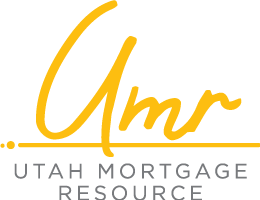Thinking about adding homeownership to your resume? Excellent choice! (in my biased, humble opinion of course)
Here is the roadmap that will hopefully change your life, and alter your financial future for the better. If you have questions in regards to your particular situation, send them my way via email at [email protected]
Step 1. Assess your situation. Get Pre-Qualified for a home purchase
I was not debt free when I bought my first place (a condo). I had variable income, the usual credit card and auto debt, and not a whole lot of savings. I also had pets, which made renting all the more trickier and difficult.
Homeownership sounded scary, but paying more on rent and adding pet deposits on top seemed just plain dumb. So I took the leap. Believe it or not, my logic at the time was that eviction as a tenant was a lot easier than foreclosure as a homeowner (which can take months or years). It was one of the best decisions of my life.
Your story might be different, but whatever your situation is, don’t let fear hold you back.
Think outside the box, such as sharing your place with a roommate to lower expenses. Window-shop on www.utahrealestate.com to see what’s out there.
When you’re ready to test out the waters, find a patient loan officer to run your situation by, and work up some numbers (I volunteer myself!)
Ask a few questions before you submit an application, as a way to test out responsiveness. Even if you know you likely have work to do, it’s best to have guidance rather than go at it blindly.
Some things you need to identify and discuss with your loan officer:
- What’s your credit score? Can it be improved fairly easily, or do you need credit repair?
- Do you need a down payment? If so, what’s the minimum? Do you have a retirement account you can withdraw against? Or a family member that can help you with a gift? What about your tax return? The rumor mill still has it that you need a 20% down payment, and that hasn’t been the case in a long time. You don’t need a down payment for USDA and VA loans. You can do a Conventional loan with as little as 3% down in some cases, and FHA loans require a 3.5% down payment.
- How much can you qualify for given your income?
If your loan officer has the ability to do a soft credit pull (won’t cause an inquiry), they can take a look at your credit score and report and advise you on how to improve it. If it’s a lot of work, they may refer you to a reputable credit repair company. They can also review your income, and put together fees worksheets for the loan programs that may be a good fit. This will give you an idea of the projected payment and closing costs involved.
Smaller independent mortgage brokers like myself will usually be borrower advocates vs paper pushers. We have access to a variety of lenders where we can send your loan for increased approval odds and/or better rate pricing depending on the scenario. So start your search with a mortgage broker in mind.
You will have successfully graduated this part if you have one of two things:
An action plan of things needed to get you approved in the future
OR
A Pre-Qualification Letter and a fees worksheet that you can go house shopping with. Don’t accept a verbal quote, or a wishy washy description of your future mortgage payment. Even if interest rates fluctuate, a loan officer’s reluctance to give you a quote/fees worksheet is an indicator their rates are high.
To get started with me, apply now.
Step 2: Decide on a real estate agent
I’m new to this. What does a buyer’s agent do? How do they get paid?
A buyer’s agent will:
- Search homes based on your criteria for location, size etc
- Schedule showings so you can see them in person
- Help you navigate and negotiate during the process of making an offer
- Advise you in matters connected to the home purchase.
- Stay level headed when you’re overwhelmed by the stress and excitement of purchasing a home. And it will happen, no matter how cool and composed you are right now reading this.
The buyer’s agent commission is paid for by the listing brokerage, via the seller’s agreement with the said listing brokerage. It is generally not the responsibility of the buyer to pay the buyer’s agent commission.
When someone lists their home with a real estate agent, they do it by written agreement for a certain percentage of the sales price. This percentage is negotiated between the seller and listing agent, and is usually anywhere from 4% to 6%. Out of that percentage, the listing brokerage will market the home with the promise of a specific percentage to be paid to the buyer’s brokerage. A 4% listing agreement can look like 1% to the listing agent, and 3% to the buyer’s agent. Or it can look like 2% to each agent at closing.
If there is no buyer’s agent and a buyer is unrepresented (not using an agent), then the buyer is deemed to have been obtained via the listing broker’s marketing efforts. The listing broker gets to keep the full agreed upon commission.
The seller doesn’t get a refund of the buyer’s agent commission, so the seller doesn’t net more money from the sale just because isn’t a buyer’s agent on the transaction. This is an important one because some people think they’ll get an edge by not using an agent, or even worse, they think they can offer less because of it. The listing agreement is between the seller and the seller’s agent, and the buyer cannot alter that.
As a buyer you won’t have access to what’s in the listing agreement, but your buyer’s agent will know how much is offered for each property. Most properties these days average somewhere around 2.5% for the buyer’s agent.
A buyer’s agent will want to have a signed agreement with you to make sure they get paid if you purchase a home that they’ve shown to you. You don’t pay them anything up front, and they don’t get paid unless you purchase a home, so they’re working for free until that happens.
This agreement is called the “exclusive buyer-broker agreement”, and it’s done for a specific amount or percentage, binding you to the agent for a certain property, or a certain amount of time (like 3 months or 6 months). Some agents will require this agreement be signed before they start showing you homes. I would caution against this because you may end up not being a good fit with this person, but you’ll be stuck with them.
Usually you will have to sign it once you make an offer on a home, as part of the paperwork for that home. Emotions will run high, so make sure you slow down and talk to your agent about the legal implications. A good agent will look forward to the conversation.
This same exclusive buyer-broker agreement will detail if an agent is charging any additional fees, so make sure you read what you sign.
Things you should pay attention to:
Don’t work with someone because of the brokerage brand name, it means nothing. In some cases, it just means higher costs to you if they charge additional fees.
Ask if they enforce a certain compensation percentage regardless of what is offered on a specific home, and how that situation is handled.
Work with someone you like, since you may be spending quite a bit of time looking at homes.
Work with someone you trust. Someone that will tell you if a house sucks when they see it, and isn’t afraid to express a personal opinion to help guide you to a good purchase.
Work with someone that is responsive, and that never makes you feel like you’re inconveniencing them with their questions.
Step 3: How much will all of this cost me?
Here is a list of costs to expect:
- Once you are under contract, you’ll want to do a home inspection. This isn’t required for your loan, and it’s fully optional, but it identifies potential issues with the property and allows you to negotiate repairs or the costs for repairs. I highly recommend getting one, especially on older homes. The cost is $350 – $500 depending on the location and size of the home. You may want to add additional testing to it, such as radon, meth, sewer scoping etc. Your agent will advise. Things it can potentially uncover: issues with the foundation, roof, major appliances, electrical etc.
- You’ll need an earnest money deposit once you are under contract, and the amount is determined by the purchase contract. This is deposited with either the real estate brokerage (your buyer agent) or the title company. This amount goes towards your down payment and closing costs.
- Loan costs. You’ll need to make your required down payment, plus closing costs associated with your loan. Hopefully your loan officer has provided you with a fees worksheet when you got Pre-Qualified. If not, ask for one right now.
- What about paying over appraisal value? In this competitive Utah market, it’s not uncommon for buyers to pay over appraisal value to get their offers accepted. Because there are very few homes, and a lot of potential buyers for each home listed, the winning offer generally has short deadlines and some amount guaranteed over the appraisal value (it can be as little as $3,000 or as high as $30,000). This is on a case by case basis, and your agent will advise you.
Now that you know a bit about how to get started and what to expect, I hope it makes things less scary. There is no way around it, paying rent is paying 100% interest. What if homeownership was within your reach all this time?
How would things be different if you owned your home? Let’s find out.
I’m just an email away [email protected]

